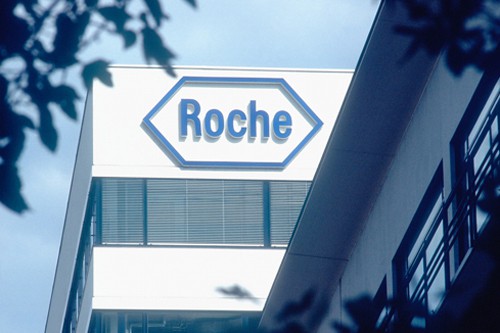
Roche has been given a positive opinion from the European Medicines Agency’s (EMA) Committee for Medicinal Products for Human Use (CHMP), recommending the approval of Vabysmo (faricimab) for patients diagnosed with neovascular macular degeneration (nAMD) and visual impairment caused by diabetic macular edema (DME).
The European Commission (EC) is expected to issue a final verdict on the approval of Vabysmo in the near future.
Neovascular AMD and DME together affect over 40 million people globally, and the current standards of care typically require eye injections every one to two months.
Vabysmo is the first bispecific antibody approved for the eye, and has the potential to extend the time between eye injections to up to four months, while improving and maintaining vision. The treatment targets and blocks two disease pathways linked to a number of vision-threatening eye conditions by neutralising angiopoietin-2 (Ang-2) and vascular endothelial growth factor-A (VEGF-A).
Ang-2 and VEGF-A contribute to sight loss by destabilising blood vessels, leading to the formation of new leaky blood vessels and increased inflammation. By blocking pathways involving Ang-2 and VEGF-A, Vabysmo has been developed to stabilise blood vessels.
With approval, it would offer the first new mechanism of action in over ten years for people in the EU living with these conditions.
“[This] recommendation marks a significant step forward in redefining treatment for people
in the EU with nAMD and DME,” said Levi Garraway, Roche’s chief medical officer
and head of global product development.
He added: “With the potential to require fewer injections over time while also improving and maintaining vision, Vabysmo could offer a less burdensome treatment schedule for patients, their caregivers and healthcare systems.”
The recommendation is based on results spanning four phase 3 studies – TENAYA and
LUCERNE in nAMD at year one, and YOSEMITE and RHINE in DME up to two years – which showed those treated with Vabysmo at intervals of up to four months achieved non-inferior vision gains versus aflibercept administered every two months.
The totality of the data across all four studies in nAMD and DME available to date demonstrated that over 60% of people treated with Vabysmo were able to extend treatment to every four months, while improving and maintaining vision. The treatment was generally well tolerated in all four studies, alongside a favourable benefit-risk profile.




